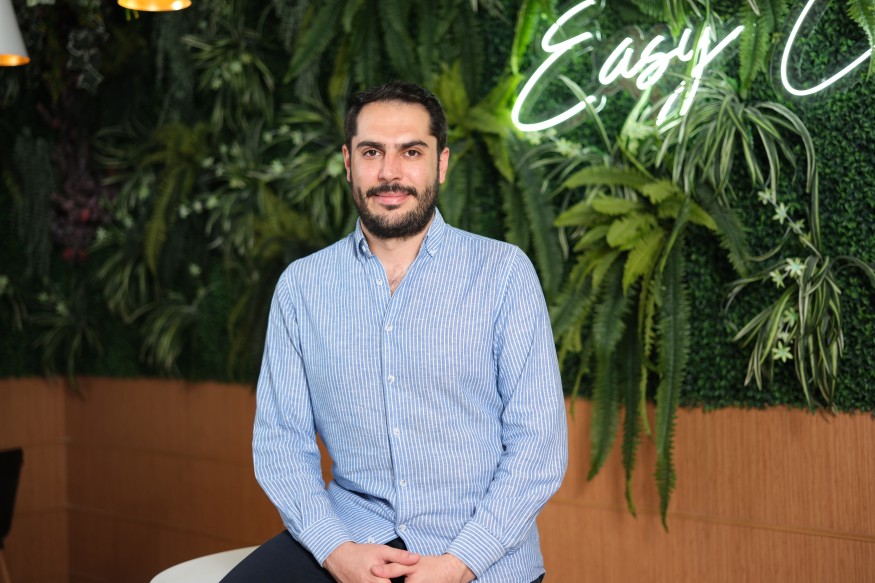
In a world grappling with mounting electronic waste and finite resources, EasyCep, a pioneer in refurbished electronics, has emerged as a sustainability champion. We sat down with Mehmet Akif Özdemir, CEO and co-founder of EasyCep, to discuss how the company addresses the global e-waste crisis and sets new standards for responsible consumption.
Q: EasyCep was recently named Sustainability Service of the Year in Europe at the 2024 International Business Awards. How does this recognition reflect your mission?
It's a significant milestone for us. The Golden Stevie® Award acknowledges our commitment to reducing electronic waste and promoting sustainability through the circular economy. Our goal has always been to extend the lifespan of electronic devices and reduce their environmental impact. This recognition motivates us to further our efforts globally.
Q: Electronic waste is a growing concern worldwide. What role does EasyCep play in addressing this issue?
The numbers are staggering. According to the United Nations, the world generated 62 million tons of electronic waste in 2022, expected to reach 82 million tons by 2030. These discarded devices often contain harmful substances like mercury, which pose serious environmental and human health risks.
At EasyCep, we refurbish devices, giving them a second life and reducing the need for new production. By increasing their lifespan, we're not only conserving resources but also helping to curb the ecological footprint of the tech industry.
Q: Can you share some measurable impacts EasyCep has achieved?
Certainly, since our inception, we've renewed over 400,000 devices and are targeting 340,000 more in 2024. Our operations have saved over 13,000 tons of CO2 emissions, and we're on track to recycle approximately 21,000 kilograms of waste batteries by year-end.
Our Sell Your Device campaign encourages consumers to contribute to the circular economy by trading in their old devices. This initiative has been pivotal in fostering responsible consumption habits.
Q: EasyCep has expanded beyond Turkiye and operates in Qatar and Azerbaijan. What's next for your global sustainability strategy?
While electronic waste is a global challenge, our impact goes beyond just addressing e-waste. At EasyCep, we've taken significant steps to regulate and organize the second-hand smartphone market in key regions. This approach not only enhances the circular economy's effects but also creates a profile of responsible, sustainability-conscious consumers.
By refining both the buyback and refurbished sales processes, we ensure that sustainability becomes an integral part of every step in the value chain. Our strategy for expansion focuses on replicating this comprehensive model in markets where we can drive both environmental and economic benefits.
Q: Technology evolves rapidly. How is EasyCep preparing for future sustainability challenges?
The intersection of artificial intelligence (AI) and robotics is transforming industries, and we see an opportunity to integrate these advancements into our processes. For example, as robots become more prevalent, they will eventually face the same end-of-life challenges as current devices. With our experience and expertise, we're prepared to refurbish and extend the lifespan of such technology.
Additionally, we're continuously evaluating how AI can enhance the efficiency of our operations, from quality checks to streamlining refurbishing processes. Our goal is to remain agile and adapt to the needs of future markets.
Q: Sustainability often requires consumer buy-in. How does EasyCep engage and educate its customers?
We believe sustainability should be accessible and practical. By transforming retail stores and establishing strategic partnerships, we've developed innovative software and business models that bring the buyback and sales approach to consumers wherever they are. Through our EasyCep Express model, we're expanding our presence to small vendors in the smartphone market, creating a wider network of impact.
We also collaborate with some of the largest companies in the world and the regions we operate in, making sustainability a seamless part of the consumer journey.
Q: What does sustainability mean to you personally?
Sustainability is about balance, balancing growth with environmental stewardship and innovation with resource conservation. It's a responsibility we all share, not just as businesses but as individuals. At EasyCep, we're proud to be part of a movement making sustainability a norm rather than an exception.
Q: As a leader in the circular economy, what's your vision for the future of electronics?
The future of electronics lies in responsible production and consumption. It's not just about creating new devices but also maximizing the value of existing ones. Our vision is to expand the circular economy globally, ensuring every electronic device has a second life and contributes to a sustainable planet.
Additionally, we're proud to have been recognized as Startup of the Year at the Global Sustainability & ESG Awards 2024 in London. This award highlights our efforts to lead the global conversation on refurbished electronics and sustainability.
About EasyCep
Founded in 2018 by Mehmet Akif Özdemir and İsmail Dinçer, EasyCep is Turkey's leading technology company specializing in refurbishing electronic devices. The company operates at the intersection of innovation and sustainability, offering consumers high-quality refurbished smartphones, tablets, smartwatches, and laptops while promoting a circular economy.
EasyCep has been recognized with several prestigious awards, including the 2024 Golden Stevie® Award for Sustainability Service of the Year in Europe and the 18th Sales & Customer Service Gold Stevie® Award. It also secured a spot in the Deloitte 2023 EMEA Technology Fast 500, ranking among the top 100 fastest-growing companies in Europe, the Middle East, and Africa, and placed third on the Deloitte Technology Fast 50 Turkey list.
With $11 million raised in its Series A funding round, EasyCep has rapidly expanded its operations to Qatar and Azerbaijan, with plans to enter new markets in the coming years. Supported by 314 employees and a robust network of 200 physical locations, the company has renewed over 400,000 devices and aims to refurbish 340,000 more by the end of 2024.
For more on EasyCep's initiatives and sustainable solutions, visit EasyCep.com.
© 2025 NatureWorldNews.com All rights reserved. Do not reproduce without permission.





